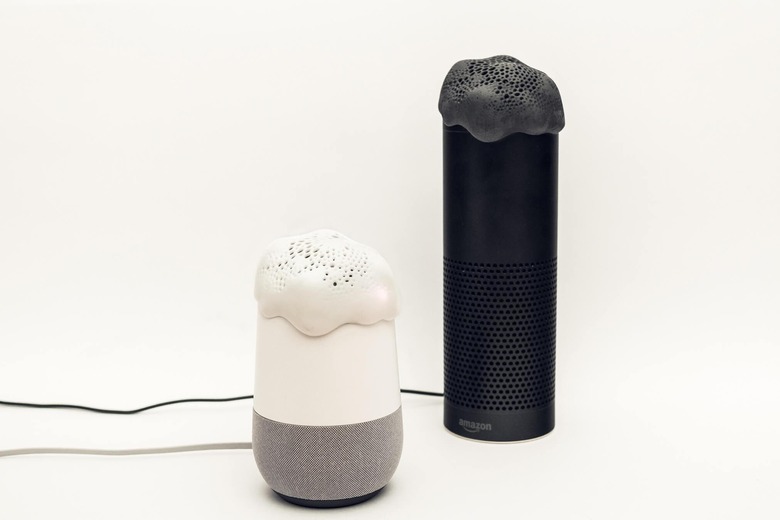Project Alias Makes Your Smart Speaker Mind Its Own Business
With the rise of always-listening smart home speakers like Amazon Echo and Google Home comes a greater worry about the privacy of their users. While Google and Amazon have maintained that their smart home speakers are only ever listening for their wake words, the fact that you're putting a mic that's live 24/7 in your house is unsettling for some people. Enter Project Alias, which is a new accessory that attempts to keep the mics on those smart home speakers in check.
Project Alias fits on top of your smart speaker – at the moment, designs are available for Google Home and Amazon Echo – and disrupts the listening capabilities of the microphone by constantly playing a "low noise/sound" through its speakers. When you say your wake word, Project Alias interrupts that constant stream of noise to open up communication again, essentially meaning that the speaker is only listening when you want it to.
Described as a "parasite" by its creators, Alias is actually an open-source project, with its source code available on GitHub and instructions for how to 3D print a shell and construct your own using a Raspberry Pi over on Instructables. Once you've constructed your own, you can train Alias to recognize a custom wake word – when Alias hears that wake word, it will play a recording of your speaker's original wake word (like "Hey Google") and allow you to communicate with it.

"We looked at how cordyceps fungus and viruses can appropriate and control insects to fulfill their own agendas and were inspired to create our own parasite for smart home systems," Project Alias creator Bjorn Karmann writes on his website. "Therefore we started Project Alias to demonstrate how maker-culture can be used to redefine our relationship with smart home technologies, by delegating more power from the designers to the end users of the products."
Even if the idea that Amazon and Google are listening to everything that happens in your house is nothing more than a conspiracy theory, it's hard to argue with claiming more privacy without necessarily compromising on functionality. You can see Project Alias in action in the video above, or check out the links to GitHub and Instructables to begin building one or your own.
